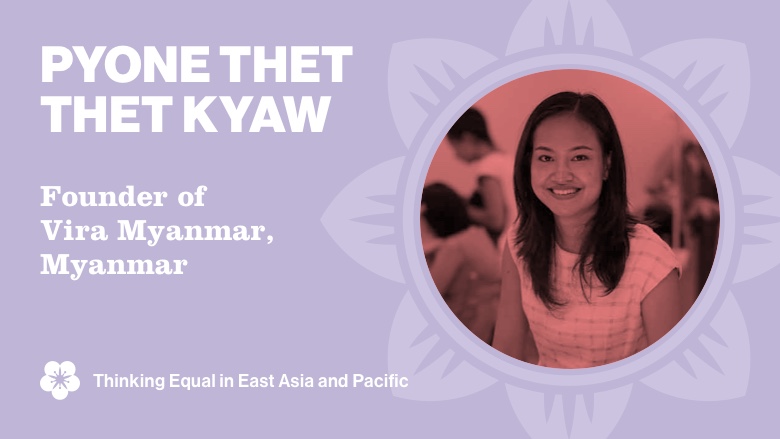Tell us about yourself.
I am the founder of Virya Myanmar, an ethical clothing brand based in Yangon. My passion for ethical fashion originated from my personal experience of being a garment worker myself at a very young age. I witnessed human exploitation in the industry and since then have been determined to one day establish a socially minded clothing brand. Virya Myanmar is a social business committed to empowering young women from underprivileged backgrounds with free quality training to help make them good designers and seamstresses. We treat workers fairly and provide them with safe working conditions, sourcing the fabrics from like-minded businesses or directly from the weavers wherever possible.
Prior to being an entrepreneur, I spent more than 10 years working in the development field including as a program manager, researcher, an election observer, a social worker, a teacher and a youth activist. I obtained a Master’s Degree in International Development from the University of Birmingham in the UK. As Virya Myanmar is now fully managed and run by the team I have trained over the last two and half years and completely self-sufficient, I have re-started my development career at a local NGO.
What inspires you to get up in the morning? What drives you?
The desire to make a positive impact on the wider society is something that drives me and inspires me to get up in the morning.
What set you on this path?
As a teenager I became passionate about dress and design, having learned it from my grandmother, who was a seamstress. I worked in garment factories producing fast fashion for rich countries and witnessed human exploitation. I became determined to one day do something to address the cruelty I saw.
What advice do you have for young women who want to take a similar path?
Follow your passion and find your purpose in life. Once you are determined to follow your passion, work harder than ever before. Each individual has their own pace, do not compare yourself to others; it can set you up for failure. Follow your heart regardless of what others are doing or not doing. Be mindful, compassionate, kind to yourself and others.
Do you have a favorite quote or saying?
“There is no beauty in the finest cloth if it makes hunger and unhappiness” – Mahatma Gandhi
What are the biggest issues in Myanmar right now and how can they be addressed?
The disparity between the rich and poor is bigger and bigger each year in Myanmar. The country needs to grow economically to alleviate poverty, however, in a sustainable and inclusive manner without putting communities and scarce resources at risk.
Where do you see Myanmar in 25 years?
Myanmar in 25 years is a self-reliant nation where everyone lives peacefully and harmoniously alongside their neighbor regardless of religion, race and color, without fear of being harmed.
What change would you like to see that could bring greater equality in Myanmar?
Economic growth needs to occur while protecting and respecting indigenous culture, heritage and creativity. In this process, businesses – both local and international – must undertake their activities in a responsible way, adopting ethical business standards.
If you could use one word to describe women in East Asia Pacific, what would it be?
Resilience would be the word I would use to describe women in East Asia Pacific. We have survived all hardship as women: we have been subject to all kinds of abuse, discrimination and violence. Regardless of these difficulties, we still manage to shine like bright stars.
--
The views expressed in this article do not necessarily represent the views of the World Bank Group and its employees.


